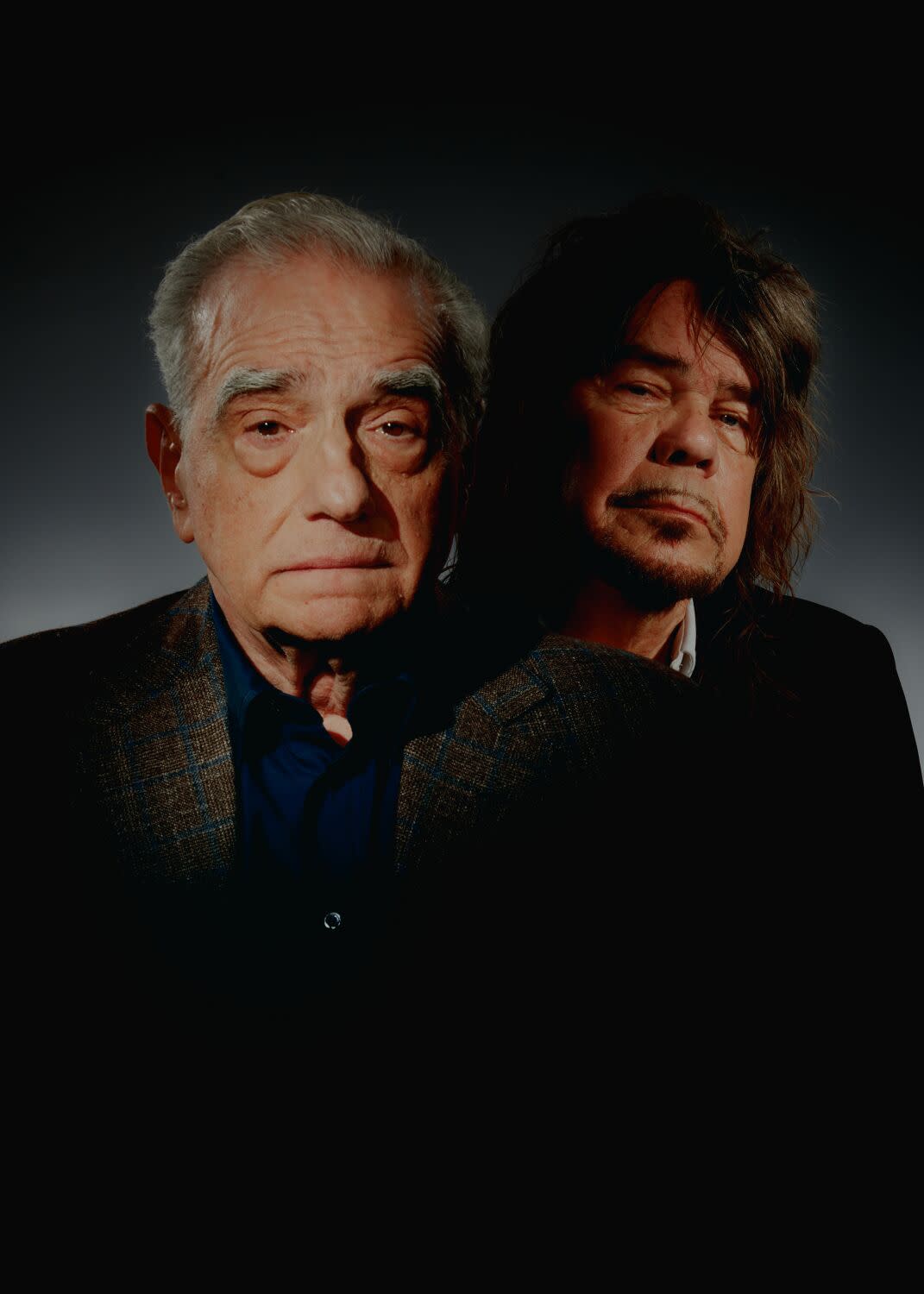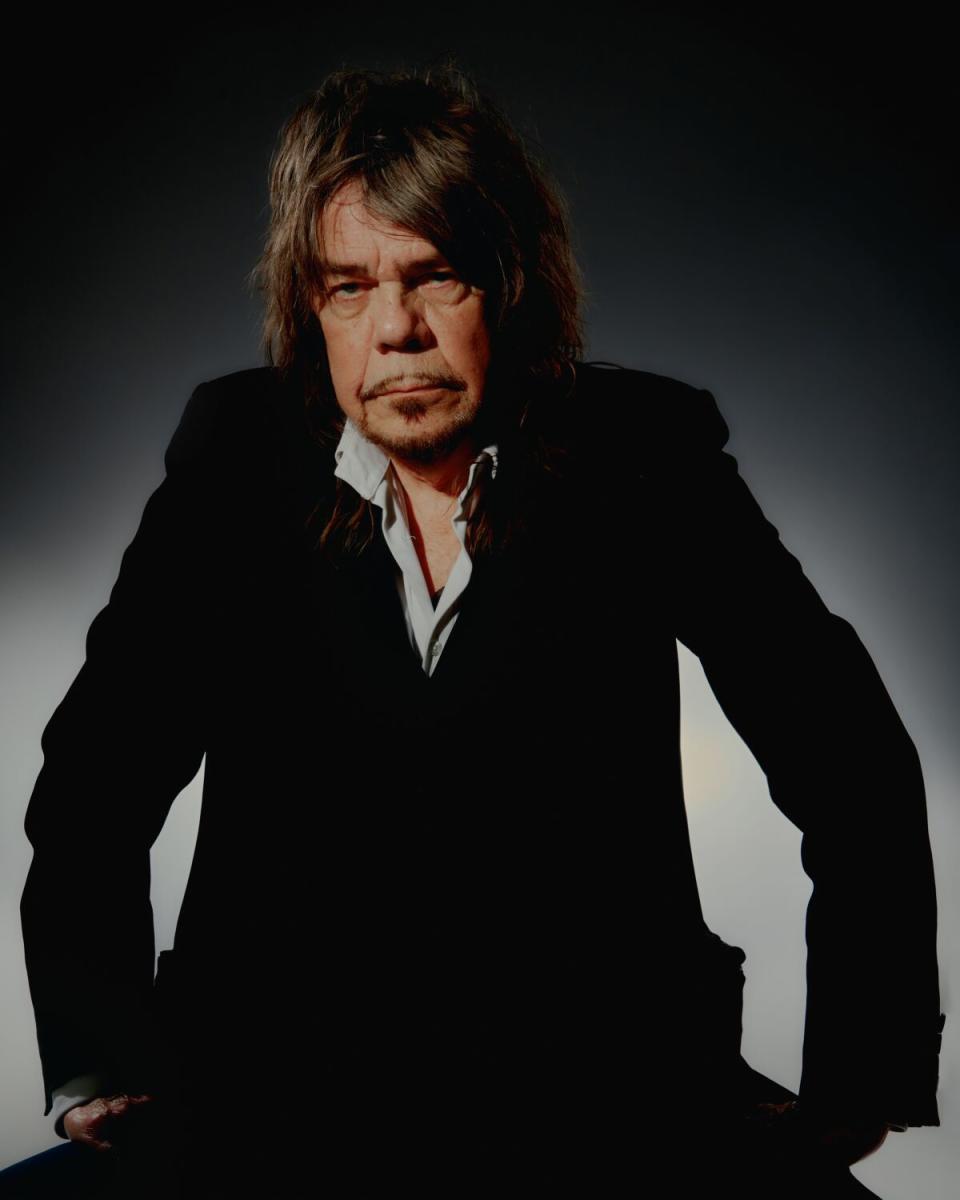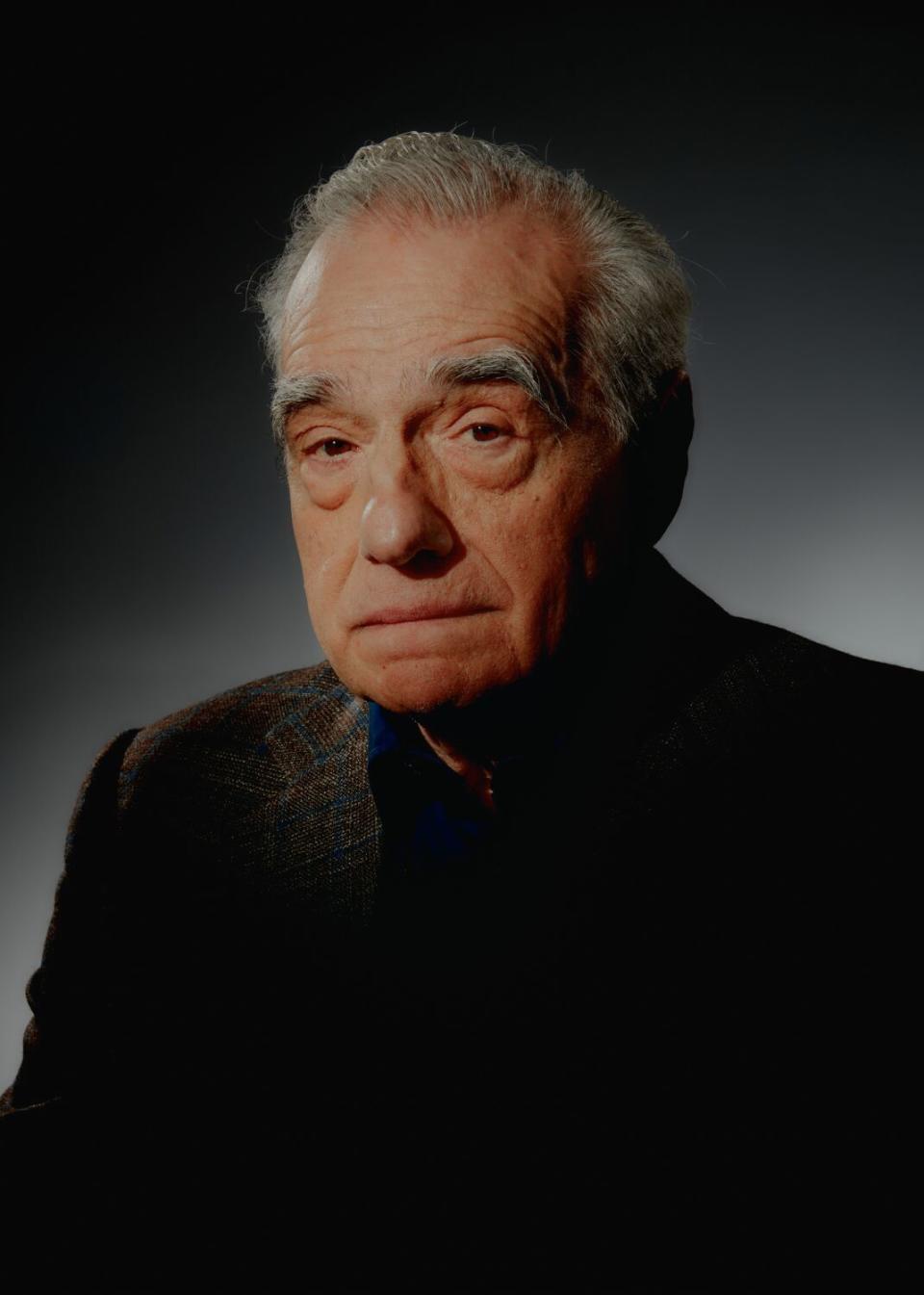Martin Scorsese chronicles David Johansen and the cabaret scene in 'Personality Crisis'

Martin Scorsese had long been a fan of David Johansen’s shape-shifting, genre-defying music career, going back to the fellow New Yorker’s punk-igniting New York Dolls days. But when he caught the singer’s Café Carlyle act in early 2020, a cabaret retrospective reinterpreted through Buster Poindexter, Johansen’s pompadoured crooner persona, Scorsese — who’s filmed the Rolling Stones and made documentaries on Bob Dylan and George Harrison — knew he had his next music film subject.
“It had a poignancy to it, and a beauty,” the director said recently, sitting alongside Johansen as the pair talked about “Personality Crisis: One Night Only,” a performance film as ode to a lifetime of rock iconoclasm.
Martin, your music documentaries always feel like the ultimate art appreciation projects.
Martin Scorsese: Music has always been an inspiration for me, for making my own films. They even suggest the narrative and the visual interpretation of the narrative. So what David has been doing over the years, I found, was sort of an expeditionary force in terms of music. David, you even had a group called The Harry Smiths.
David Johansen: Yeah, Harry was responsible for the “Anthology of American Folk Music.” All the folk singers on Bleecker Street learned their set from that album.
Scorsese: When I did [the concert film] “The Last Waltz,” that was a liberating experience. I was very naive about a lot of this stuff, the roots of where this music came from, the beauty of American music itself.
David, it’s no mean trick to collect a lifetime of songs. What does music world survival mean to you?
Johansen: I just do what the spirit moves me to do, you know? I’m kind of a niche person. Some people would be like, “Oh, I want to make all this money,” but I never really got into that. I find that I don’t have to appeal to a huge audience. So cabaret is a good setting. Rock shows, especially if you’re in a big field, I always think they’re like Hitler Youth rallies. You can’t really put any humor in it or say things that are funny. A person going to a cabaret or showroom tends to be more sophisticated.
Martin, you’ve directed big concert movies, so what was on your mind in capturing David’s Carlyle show?
Scorsese: Not just shooting the act, but a performance that includes body language, the suit, the hair, the glasses, how he moves. We had this confined area, which locked us into him only. No distractions. That would be interesting. We didn’t know what kind of film it would be. Then, two or three weeks later, COVID came down.
Johansen: When Marty said, “I want to film this,” at first I was hesitant. I thought, if we film this, and everyone sees it, then they wouldn’t come out and pay to see it again. Of course, COVID came on. [He laughs.] It worked out. [Marty] tells the future, as well.

Did you get involved, David? Perhaps consulting with the archival footage?
Johansen: My wife, Mara, had a lot to do with this. I didn’t know what was going on, and I didn’t want to know. [Scorsese laughs.] Because if I started putting my two cents in, I’d f— it up. You know, the difference between the way you see yourself and the way someone else sees you?
Read more: Rockumentary master Martin Scorsese does it again, with New York Dolls' David Johansen
Scorsese: Mara really guided David Tedeschi, our co-director. He would say, “You know, we need something better from 1985 or 1973.” And she’d find the film, direct him to a source. Then other people would say, “I’ve got something.” Like [the song] “Bad Boy,” for example. That was remarkable.
With David’s interviews for “Personality Crisis,” that’s not you asking questions, Martin. It’s his daughter, Leah — sometimes in the backyard, sometimes on a couch. What prompted that decision?
Scorsese: That was another thing. We said, “We’re going to need him to talk!” But how were we going to?
Johansen: People call me all the time, “Would you be in this documentary about punk music …” or whatever. I’m always “No!” Whenever I see myself answering these questions, I go, “Who is that guy? What is he talking about?” When I see myself on film, I’m kind of cringey.
Scorsese: So, yeah, it’s just not going to happen. Also, with COVID, we [couldn’t] travel. So we said, Leah is a terrific filmmaker, let’s use her! If the daughter does it, he’s got to do it!
Johansen: And she’s been making films since she was, I don’t know, 13?
Scorsese: What was good about her is that it’s a family thing. It created the intimacy we need as a family film. She can ask a question she knows he’s going to get mad at. But she’s got to ask him!

Because it’s revealing even if he doesn’t?
Scorsese: Exactly. Because we didn’t want him sitting in a studio. She miked him as best she could. And that was it. And I would give a little guidance, virtually. She would say, “I can’t get this,” or whatever. She was concerned.
Johansen: About getting me to talk more?
Scorsese: Yeah.
Read more: The 2023 Emmys BuzzMeter predicts the nominees
I love the idea that Leah had America’s greatest living filmmaker on call.
Scorsese: I would say, “Keep shooting! Eventually something’s going to happen!” Because this is digital, it isn’t that she has to keep loading [film]. Just run that camera.
Johansen: And being that Leah does the interviews, she gets me in my natural state. The guy you see there in those interviews is essentially me, you know?
David, you’ve done your fair share of acting. Martin, why did you never cast him in something?
Scorsese: I tried. I think even for “The Last Temptation of Christ,” back in 1983? I remember I saw you that time.
Johansen: It’s Jesus or nothing!
Scorsese: [Laughing] See, he was very demanding. He had his own way of doing things.
This story originally appeared in Los Angeles Times.
